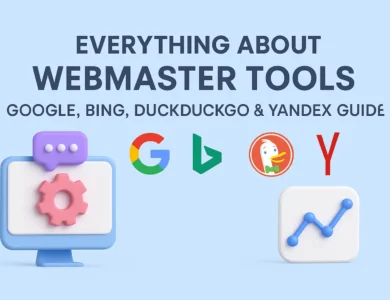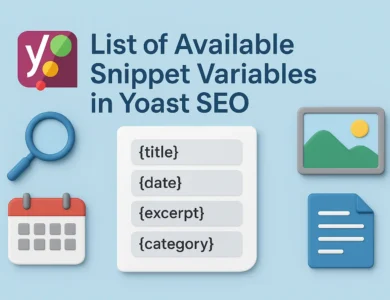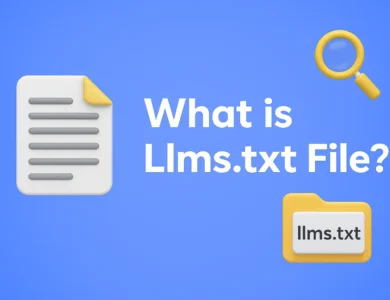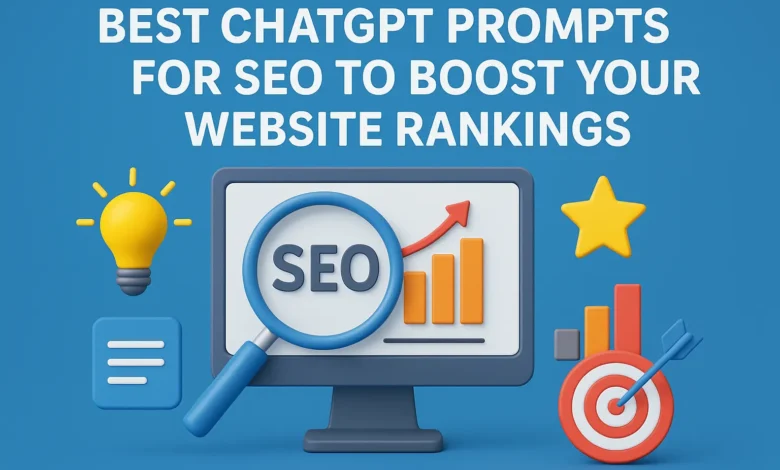
Search engine optimization, or SEO, is the process of making a website easier to find and rank higher in search engines like Google and Bing. SEO includes writing good content, researching keywords, optimizing web pages, and analyzing results. Doing all this manually can take a lot of time.
ChatGPT, an artificial intelligence tool, can help with many SEO tasks. By giving ChatGPT the right prompts, you can get high-quality content, keyword ideas, SEO recommendations, and more.
In this article, we will explain what ChatGPT prompts for SEO are, how to use them, and give examples for different SEO tasks.
What Are ChatGPT Prompts for SEO?
A prompt is an instruction or question that you give to ChatGPT. In SEO, prompts tell ChatGPT what you want it to do for your website.
Using prompts allows you to guide ChatGPT and get answers that are specific and useful for your SEO work. The better the prompt, the more accurate and helpful the response.
For example, you can ask ChatGPT to:
- Write a blog post about a topic.
- Suggest keywords for your content.
- Improve meta descriptions or headings.
- Analyze your content for SEO performance.
Elements of a Good ChatGPT Prompt
To make the most of ChatGPT for SEO, you need to create good prompts. A good prompt has these elements:
- Clear instructions – Be specific about what you want ChatGPT to do.
- Topic or keyword – Provide the main topic or keyword for the content.
- Format – Specify the type of content, such as a blog post, list, or table.
- Length – Indicate if you want a short paragraph or a long article.
- Style or tone – Mention whether the writing should be formal, casual, or friendly.
For example:
“Write a 500-word blog post in simple English about the benefits of yoga for beginners. Include a list of exercises and use a friendly tone.”
SEO Content Prompts
Content is one of the most important parts of SEO. ChatGPT can help you create high-quality content quickly. These prompts allow you to get ready-to-publish content or ideas that you can refine and optimize further.

Below are some prompts you can use:
- Write a 1000-word blog post about the benefits of electric cars for the environment.
- Create a list of 10 tips for improving website speed for SEO.
- Write a product description for a wireless mouse in simple English.
- Generate 5 frequently asked questions and answers about digital marketing.
Keyword Research Prompts
Keywords are the words and phrases people type into search engines. Choosing the right keywords is critical for SEO. ChatGPT can suggest keywords and related topics.

Using these prompts helps you find relevant keywords that can attract more visitors to your site.
Example prompts:
- List 20 long-tail keywords for organic skincare products.
- Give 10 low-competition keywords for a travel blog about Europe.
- Suggest keyword ideas for an article about home gardening.
- Create a table with primary keywords, search intent, and suggested titles.
Technical SEO Prompts
Technical SEO focuses on the website structure, speed, and other backend elements. ChatGPT can give advice or generate checklists.

These prompts save time and help you focus on important technical improvements.
Example prompts:
- Create a technical SEO checklist for a WordPress website.
- Explain how to improve website speed and performance for SEO.
- Suggest ways to fix broken links and improve site navigation.
- Generate a list of recommended plugins for WordPress SEO.
On-Page Optimization Prompts
On-page SEO is about optimizing content, headings, images, and meta tags on each page. ChatGPT can assist with this too.
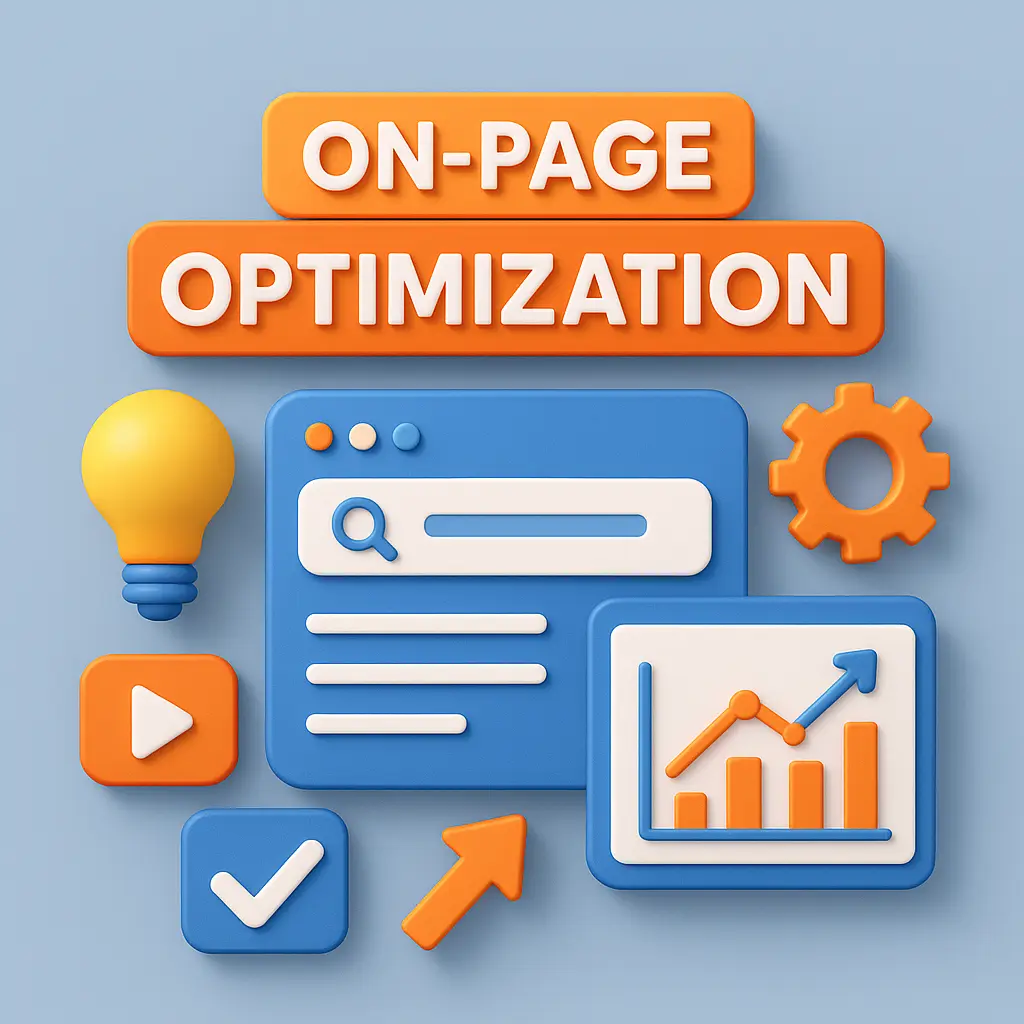
Using ChatGPT for on-page optimization ensures that each page is well-structured and easier for search engines to understand.
Example prompts:
- Rewrite this meta description for a blog post about SEO tips in under 160 characters.
- Suggest H2 and H3 headings for an article about online learning.
- Check this paragraph and suggest improvements for SEO.
- Generate alt text for 10 images on a travel blog.
Local SEO Prompts
Local SEO helps businesses appear in search results for specific locations. ChatGPT can create content and listings for local audiences.
These prompts can improve visibility in local searches and attract more nearby customers.
Example prompts:
- Write a Google Business profile description for a bakery in New York.
- Create 5 blog post ideas about local restaurants in Chicago.
- Generate a list of keywords for a local plumbing service in Los Angeles.
- Write a short introduction for a local service page with city and neighborhood keywords.
SEO Reporting and Analytics Prompts
Monitoring and analyzing SEO performance is essential. ChatGPT can help create reports or summaries of data.

These prompts make reporting faster and easier to understand.
Example prompts:
- Summarize the SEO performance of a website based on traffic and keyword rankings.
- Generate a monthly SEO report template with sections for content, keywords, and backlinks.
- Explain how to improve low-performing pages on a website.
- Create a chart showing keyword ranking progress over three months.
Competitor Analysis Prompts
Understanding competitors helps you improve your SEO strategy. ChatGPT can provide insights and comparisons.
Example prompts:
- List the top five competitors for a fitness blog and their main keywords.
- Compare two websites and suggest areas where my website can improve.
- Generate a table of competitor backlinks for a digital marketing site.
- Analyze competitor content and suggest topic ideas to outrank them.
- Competitor analysis prompts give you actionable ideas to stay ahead in your niche.
Advanced and Unconventional SEO Prompts
ChatGPT can also help with advanced SEO tasks that are less common but very effective.
These prompts help you implement strategies beyond basic SEO to gain an advantage over competitors.
Example prompts:
- Generate schema markup examples for a recipe website.
- Create a list of content ideas for voice search optimization.
- Suggest ways to improve user engagement and reduce bounce rate.
- Generate topic clusters and content silos for a blog about technology.
Comprehensive List of 44 ChatGPT SEO Prompts
Content Creation Prompts
- Write a blog post about [topic] for beginners.
- Generate a list of 10 blog post ideas for [topic].
- Rewrite this paragraph to be more SEO friendly: [text].
- Create 5 FAQ questions and answers about [topic].
- Summarize [article URL] into a 300-word post.
- Write a product description for [product name].
- Create meta descriptions for a page about [topic].
- Generate engaging social media captions for [topic].
- Write an introduction paragraph for a blog post on [topic].
- Suggest H2 and H3 headings for an article about [topic].
Keyword Research Prompts
- Provide 20 long-tail keywords for [topic].
- Suggest low-competition keywords for [topic].
- Generate a keyword cluster for [main keyword].
- Suggest questions people ask about [topic] for SEO content.
- Provide search intent for each of these keywords: [list].
- List related topics to [keyword] for blog content ideas.
- Generate semantic keywords for [main keyword].
- Suggest keywords to target for voice search related to [topic].
- Create a table of primary and secondary keywords for [topic].
- Generate trending keywords for [industry or niche].
Technical SEO Prompts
- Create a technical SEO checklist for [website type].
- Suggest improvements to website speed for SEO.
- Identify common SEO errors for [website type].
- Suggest schema markup for [page type].
- Provide tips to improve mobile optimization for [website].
- Generate a list of internal linking opportunities.
- Identify crawlability issues and solutions.
- Suggest URL structure improvements for [website].
- Create a list of SEO plugins for [CMS platform].
- Explain how to fix broken links for SEO.
On-Page Optimization Prompts
- Optimize meta title for a page about [topic].
- Rewrite meta description for [page URL].
- Suggest alt text for images on [page URL].
- Improve readability and SEO for [paragraph or article].
- Generate a list of headings (H1, H2, H3) for [article].
Local SEO Prompts
- Suggest local SEO strategies for a business in [city].
- Generate Google Business profile description for [business].
- List local keywords for [service] in [city].
- Create a location-specific landing page outline.
- Suggest ways to get local reviews and citations.
SEO Reporting and Competitor Analysis Prompts
- Analyze top competitors for [keyword] and list strengths and weaknesses.
- Generate an SEO performance report template.
- Suggest areas for improvement for [website] based on SEO metrics.
- Compare [website] to competitors and suggest content ideas to outrank them.
Using ChatGPT for SEO
By following these guidelines, ChatGPT becomes a powerful assistant that saves time, improves productivity, and enhances your SEO results.
To get the best results with ChatGPT for SEO, follow these tips:
- Be specific – Always give clear instructions in your prompt.
- Check accuracy – AI may generate errors, so verify facts and links.
- Optimize content – Even AI-generated content needs human editing for SEO.
- Combine prompts – Use multiple prompts for research, content creation, and optimization together.
- Update regularly – SEO rules and search engine algorithms change, so keep content updated.
Final Words
ChatGPT is a valuable tool for SEO professionals and website owners.
By using the right prompts, you can generate high-quality content, find relevant keywords, optimize pages, and even perform competitor analysis.
From content creation to technical SEO, local SEO, and reporting, ChatGPT can assist with almost every aspect of search engine optimization.
The key to success is creating clear, detailed, and specific prompts.
With practice, you can fully integrate ChatGPT into your SEO workflow and make your website more visible, faster, and more effective in reaching your audience.
FAQS
What is a ChatGPT prompt for SEO?
A prompt is a question or instruction you give to ChatGPT to help with SEO tasks like writing content, suggesting keywords, or improving meta descriptions.
How can ChatGPT help with SEO?
ChatGPT can create blog posts, generate keywords, optimize web pages, analyze content, and provide SEO recommendations quickly.
What makes a good ChatGPT prompt?
A good prompt is clear, includes a topic or keyword, specifies the format and length, and mentions the writing style or tone.
Can ChatGPT create content for my website?
Yes, it can write blog posts, product descriptions, social media captions, FAQs, and meta descriptions for your website.
How does ChatGPT help with keyword research?
It can suggest long-tail keywords, low-competition keywords, semantic SEO keywords, trending keywords, and create keyword clusters.
Can ChatGPT assist with technical SEO?
Yes, it can generate SEO checklists, suggest improvements for site speed, mobile optimization, broken links, schema markup, and internal linking.
What is on-page SEO and how can ChatGPT help?
On-page SEO is about optimizing headings, meta titles, meta descriptions, and images on each page. ChatGPT can rewrite these elements for better SEO.
How can ChatGPT help with local SEO?
It can create Google Business profiles, suggest local keywords, write location-specific content, and give tips for getting reviews.
Can ChatGPT help with SEO reporting and competitor analysis?
Yes, it can generate SEO reports, analyze top competitors, suggest improvements, and provide content ideas to outrank them.
What are the best practices when using ChatGPT for SEO?
Be specific in your prompts, check the accuracy of results, optimize content manually, combine multiple prompts, and update content regularly.




